
The Parliament Magazine: 'Time to revolutionise the way we produce and consume food'
With the Farm to Fork Strategy the EU has the opportunity to prove that it is ready to change its policies in order to safeguard our long-term future, writes Francisco Guerreiro.
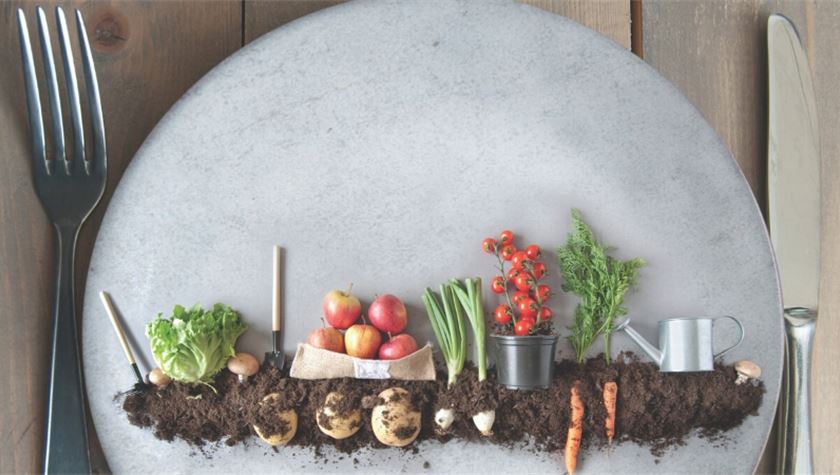
Earlier this month, Climate Action Commissioner Frans Timmermans reassured us in the Agriculture and Rural Development Committee that the Farm to Fork Strategy will be released on 20 May. The Greens/EFA group were happy to hear that there would be no more delays to the release of such an important strategy, which has promised to revolutionise the unsustainable way the EU produces and consumes food.
While the Strategy is about to be published, the Common Agricultural Policy (CAP) negotiations are still ongoing. The Greens/ EFA group have been pushing for a CAP that seeks to correct our past environmental mistakes, but Parliament’s more conservative groups have been hindering progress in this field. It is therefore likely that the new CAP will follow the same footsteps as its predecessor, such as incentivising intensive farming.
For now, it remains very unclear how the CAP and the Strategy will work together and without contradicting each other. Despite this uncertainty, there is an expectation that the Coronavirus crisis can encourage the Commission to set more ambitious goals in the Strategy, enabling a green recovery. For example, the need to reduce meat and dairy consumption is something the Commission must include and set milestones for.
It is unrealistic to believe we can achieve a sustainable livestock production system without significantly changing our eating habits. Plant-based proteins generally have lower environmental footprints than animal products in terms of land use, water use, and greenhouse gas emissions and the Strategy should look at incentivising their production and consumption.
The Commission’s Green Public Procurement (GPP) guidelines have defined criteria for authorities that “want to go further in supporting environmental and innovation goals.” For catering services, it is suggested to have at least two fully vegetarian or plant-based days per week; that more than half of the dishes offered should be vegetarian or plant-based; that the ‘dish of the day’ should be vegetarian or plant-based; and that meat dishes should be bulked up with beans, grains or vegetables.
"There is an expectation that the Coronavirus crisis can encourage the Commission to set more ambitious goals in the Strategy, enabling a green recovery"
The Strategy should further build on the GPP guidelines - which are surprisingly progressive - and set minimum mandatory standards for at least the catering services of national public sectors. The EU institutions must incorporate these guidelines into their own services to lead by example too, although these should have been in place when they were published.
In addition to incorporating plant-based foods into sustainable dietary guidelines, dedicating EU research and innovation funds to increasing the availability of meat-free protein sources and extending the EU School Milk Scheme to plant-based alternatives, the Strategy must also address the need to price meat and dairy with its real cost. The debate on real food pricing revolves around whether we should consider its environmental impact.
The meat and dairy industries, each heavily subsidised by the EU, are able to place their products on the market at a very affordable price that incentivises consumer purchasing. This is unfair for farmers and environmentally wrong. The Strategy must therefore adjust EU subsidies and fiscal incentives to encourage producers to invest in less polluting industries and promote healthy and sustainable eating habits.
Food labelling is another aspect the strategy should address, as it can help consumers make better choices and motivate producers to upscale their green commitments. Such a labelling scheme should introduce clear EU-wide labels to help consumers identify nutritional values, the product’s overall environmental impact, plant-based products, animal welfare commitments and locally-produced food.
"Now we have the opportunity to prove that the EU has learnt the lesson from its unsustainable and non-resilient food system and is ready to change its policies in order to safeguard our long-term future"
The latter would help stimulate the preference for short supply chains, an issue that deserves its own set of robust incentives. The EU’s animal welfare legislation also needs to be revised, updated and properly enforced. The Strategy must address the need to expand the scope of this legislation to the protection of all farmed animals, including fish. I also hope that it foresees the phasing-out of cage farming and the long-distance transport of live animals (which, again, would also stimulate the development of short supply chains) or incentivise the transport of carcasses instead.
Another key feature of the Strategy must be the development of the organic food sector. By setting clear quantitative targets, the EU should seek to increase its organic land use from the current level of approximately 8 percent up to 20 percent. Examples of other key areas which must not be forgotten by the Strategy are food waste, excessive food packaging and the need to ensure that fisheries are effectively monitored and controlled to end over-fishing and bycatch.
The crisis has proven that the EU is able to rapidly adapt its policies when our lives are at risk in the short-term future. Now we have the opportunity to prove that the EU has learnt the lesson from its unsustainable and non-resilient food system and is ready to change its policies in order to safeguard our long-term future. A lot of hope has been put in the Farm to Fork Strategy - now is the time for the European Commission to deliver.
Lê o artigo aqui.

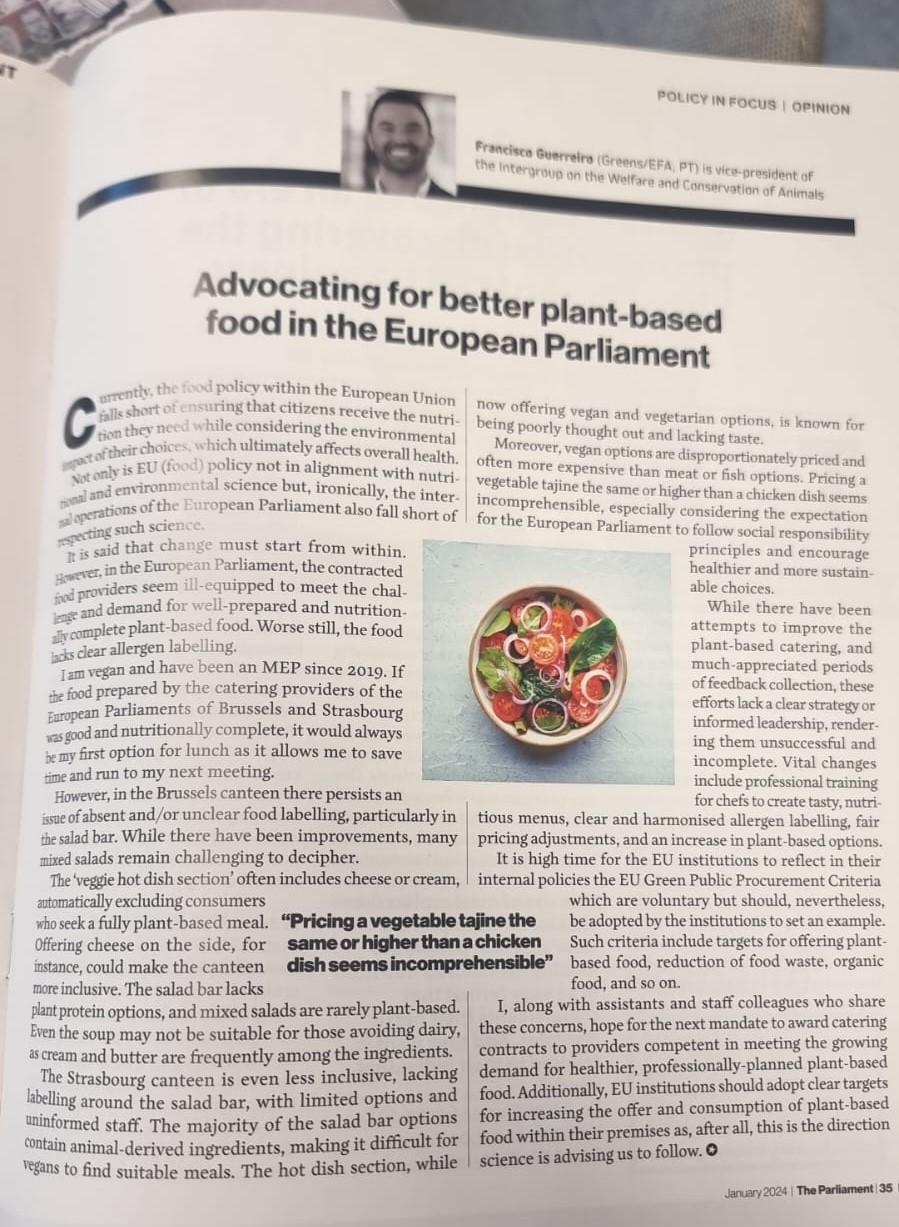
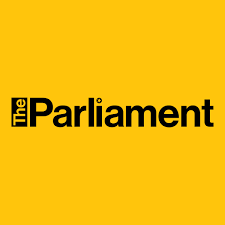
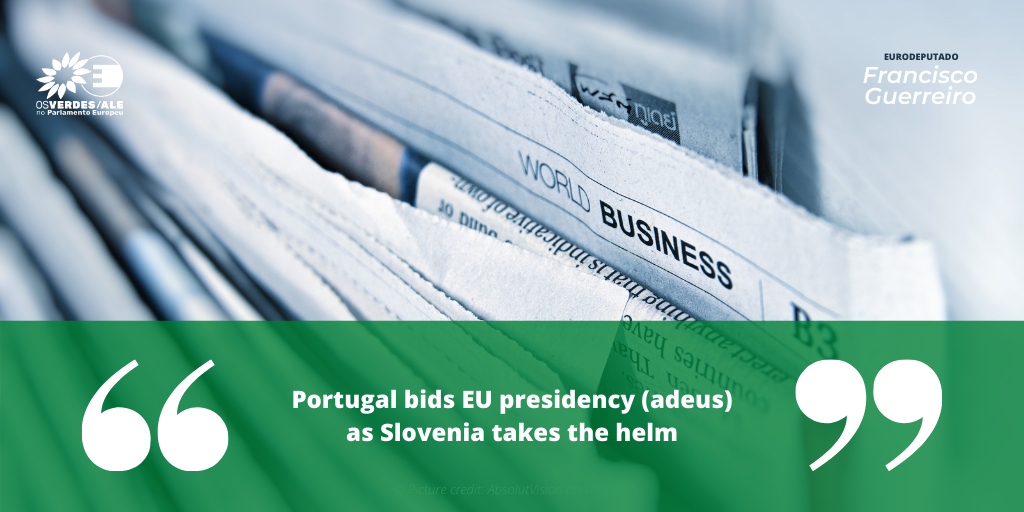
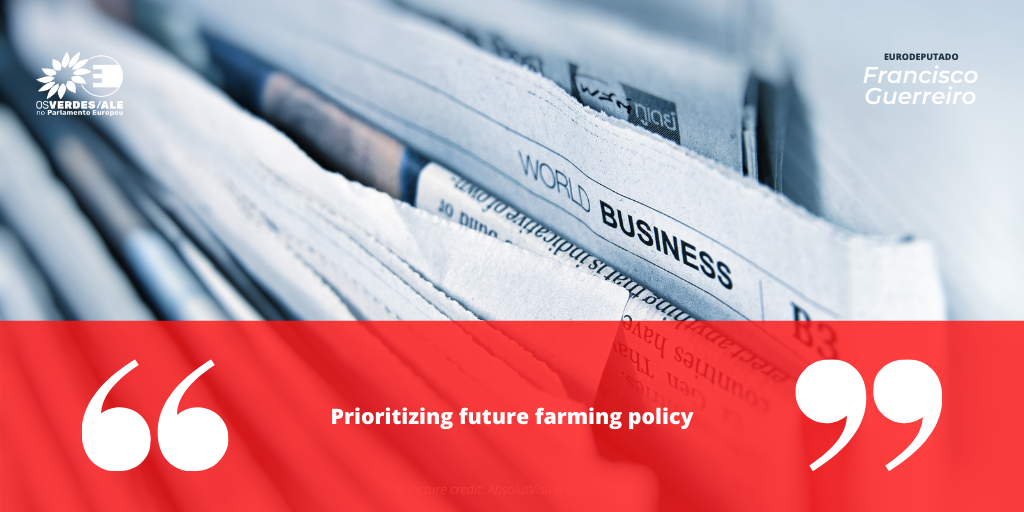
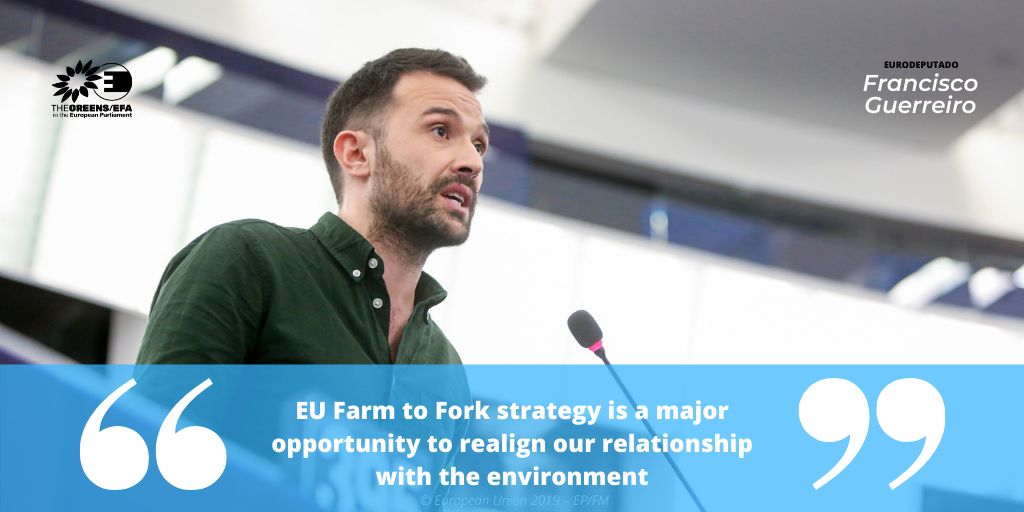
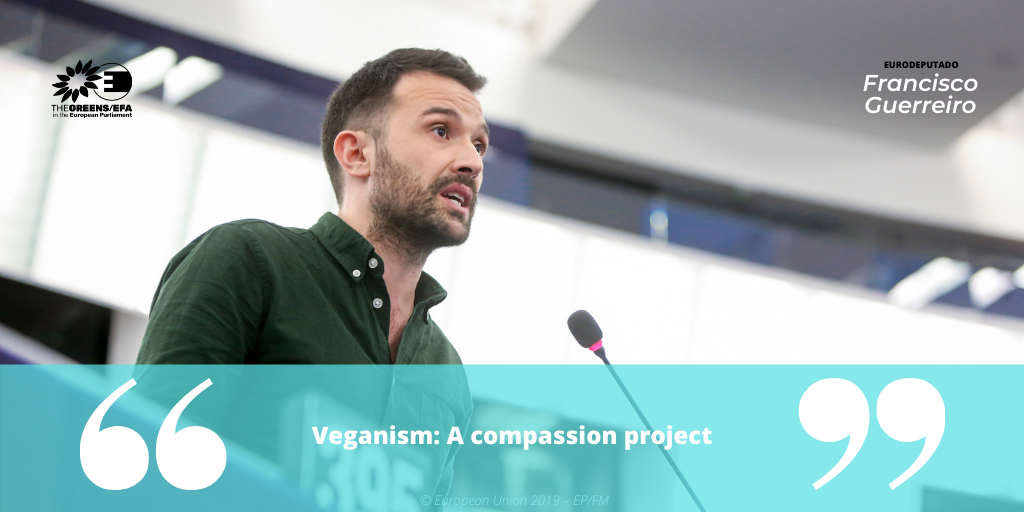
The Parliament Magazine: 'From policy to plate: advocating for better plant-based food in the European Parliament'
Terça-feira, 23 de Janeiro de 2024
LER MAIS